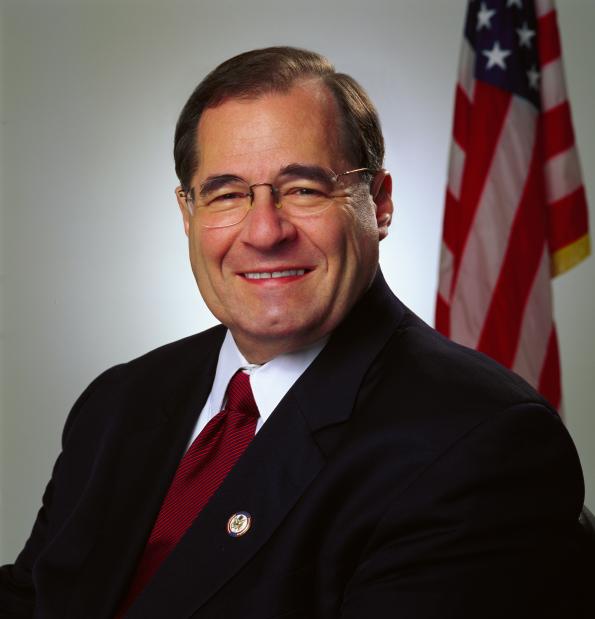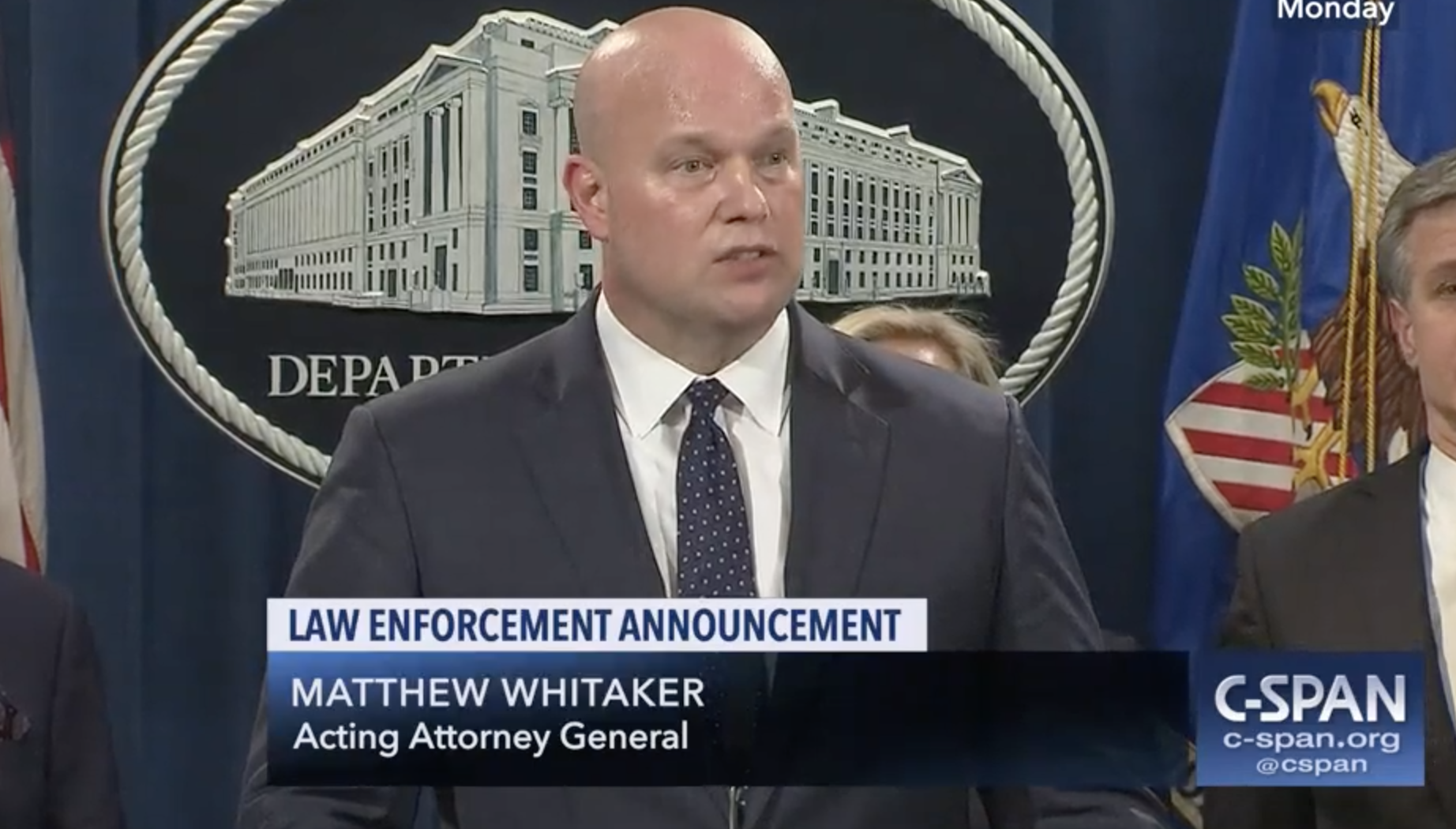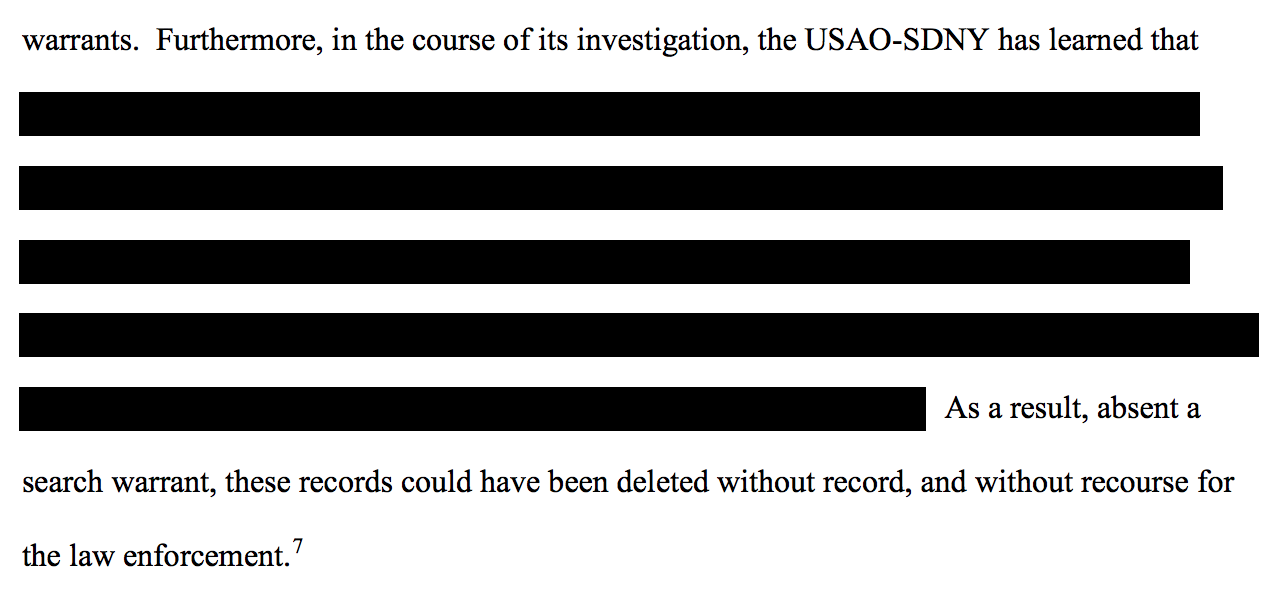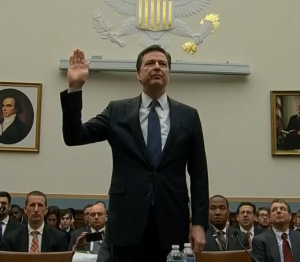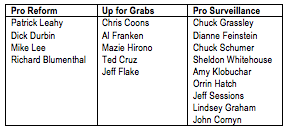Update: CNN is matching NBC’s reporting on this. It also backs its report with real details from their superb stakeout.
On Monday, Tuesday and Wednesday last week, special counsel’s office employees carried boxes and pushed a cart full of files out of their office — an unusual move that could foreshadow a hand-off of legal work.
At the same time, the Mueller prosecutors’ workload appears to be dwindling. Four of Mueller’s 17 prosecutors have ended their tenures with the office, with most returning to other roles in the Justice Department.
And the grand jury that Mueller’s prosecutors used to return indictments of longtime Trump confidant Roger Stone, former Trump campaign chairman Paul Manafort, and several Russians hasn’t apparently convened since January 24 the day it approved the criminal charges against Stone.
I take from that I’m wrong about Mueller waiting for the two appeals (he knows what he’ll get from them) before he delivers his verdict.
Pete Williams did the NBC circuit yesterday claiming that the Mueller report may be submitted to DOJ as soon as next week.
Pete Williams on MSNBC says the Mueller report may go to DOJ as early as next week
Because a lot of people have asked me about this and because Williams (and some other journalists) don’t appear to know enough about the Mueller investigation to ask the proper questions to assess that claim, I’d like to lay out a little logic and a few facts. It’s certainly possible that a Mueller report is coming next week — I’d argue that one is assuredly coming on Friday. But I doubt that means what Williams thinks it does.
The conclusory report is not coming next week
When most people think of “the Mueller report,” they mean this report, dictated by the Special Counsel regulations.
At the conclusion of the Special Counsel’s work, he or she shall provide the Attorney General with a confidential report explaining the prosecution or declination decisions reached by the Special Counsel.
When Mueller is done, he has to submit a confidential report to the Attorney General (who is now Mueller’s friend William Barr) telling him what he did and didn’t do. Given everything Barr said as part of his confirmation process, we’re unlikely to see this report.
To assess whether this report is what Pete Williams thinks is coming, we should assess whether public evidence is consistent with Mueller being done.
The answer to that is clearly no. He’s still chasing testimony from Roger Stone flunkie Andrew Miller and from some foreign owned corporation (and has been chasing that, in the case of Miller, since last May).
Given that Miller already interviewed with the FBI for two hours and the foreign company is, by dint of being foreign, a no-brainer target for NSA, it’s quite likely Mueller knows what he’s getting from both of these entities. He just needs Miller on the record, so he can’t change his story to protect Stone, and needs to parallel construct the information from the foreign company. So it’s possible that as soon as Mueller gets both of these things, he’ll finish up quickly (meaning The Report could be soon). But there is no way that’ll happen by next week, in part because whatever the DC Appeals Court says in the Andrew Miller case, the loser will appeal that decision.
So it’s virtually certain that The Report is not coming by next week.
A report talking about “collusion” is coming this week
But maybe NBC’s sources are speaking metaphorically, and mean something else that isn’t the conclusory report but that will more closely resemble what everyone thinks of when they talk about The Report.
That’s likely to happen, but if it does, it’ll just be a partial report.
That’s because both Mueller and the defense have to submit a sentencing memo in Paul Manafort’s DC case Friday. As I noted back in November when Mueller’s prosecutors declared Manafort to have breached his plea agreement, this sentencing memo presents an opportunity for Mueller to “report” what they’ve found — at least with respect to all the criminal actions they know Manafort committed, including those he lied about while he was supposed to be cooperating — without anyone at DOJ or the White House suppressing the most damning bits. DOJ won’t be able to weigh in because a sentencing memo is not a major action requiring an urgent memo to the Attorney General. And the White House will get no advance warning because Big Dick Toilet Salesman Matt Whitaker is no longer in the reporting chain.
So, as noted, Mueller will have an opportunity to lay out:
- The details of Manafort’s sleazy influence peddling, including his modus operandi of projecting his own client’s corruption onto his opponents
- The fact that Manafort already pled guilty to conspiring with a suspected Russian intelligence asset
- The details about how Manafort — ostensibly working for “free” — got paid in 2016, in part via kickbacks from a Super PAC that violated campaign finance law, possibly in part by Tom Barrack who was using Manafort and Trump as a loss-leader to Middle Eastern graft, and in part by deferred payments or debt relief from Russian-backed oligarchs
- Manafort’s role and understanding of the June 9 meeting, which is a prelude of sorts to the August 2 one
- The dates and substance of Manafort’s ongoing communications with suspected Russian intelligence asset Konstantin Kilimnik, including the reasons why Manafort shared highly detailed polling data on August 2, 2016 that he knew would be passed on to his paymasters who just happened to be (in the case of Oleg Deripaska) a central player in the election year operation
- The ongoing efforts to win Russia relief from the American Ukrainian-related sanctions by pushing a “peace” plan that would effectively give Russia everything it wants
- Manafort’s ongoing discussions with Trump and the Administration, up to and including discussions laying out how if Manafort remains silent about items two through six, Trump will pardon him
Because those items are all within the substance of the crimes Manafort pled guilty to or lied about during his failed cooperation, they’re all squarely within the legitimate content of a sentencing memo. And we should expect the sentencing memo in DC to be at least as detailed as the EDVA one; I expect it, like the EDVA one and like Manafort’s plea deal, will be accompanied by exhibits such as the EDVA one showing that Manafort had bank accounts to the tune of $25,704,669.72 for which suspected Russian intelligence asset Konstantin Kilimnik was listed as a beneficial owner in 2012. Heck, we might even get to see the polling data Manafort shared, knowing it was going to Russia, which was an exhibit to Manafort’s breach determination.
The only thing limiting how much detail we’ll get about these things (as well as about how Manafort served as a secret agent of Russian backed Ukrainian oligarchs for years) is the ongoing sensitivities of the material, whether because it’s grand jury testimony, SIGINT collection, or a secret Mueller intends to spring on other defendants down the road.
It’s the latter point that will be most telling. As I noted, thus far, the silences about Manafort’s cooperation are — amazingly — even more provocative than the snippets we learned via the breach determination. We’ll likely get a read on Friday whether Mueller has ongoing equities that would lead him to want to keep these details secret. And the only thing that would lead Mueller to keep details of the conspiracy secret is if he plans to charge it in an overarching conspiracy indictment.
We may also get information, however, that will make it far more difficult for Trump to pardon Manafort.
So, yeah, there’s a report coming out this week. But it’s not The Report.
Any overarching conspiracy indictment will not be coming this week
It’s possible Mueller is close to charging an overarching conspiracy indictment, laying out how Trump and his spawn entered into a quid quo pro with various representatives of the Russian government, getting dirt on Hillary and either a Trump Tower or maybe a bailout for the very same building in which Manafort met with Konstantin Kilimnik on August 2, 2016. In exchange for all that, Trump agreed to — and took steps to deliver on, with some success in the case of election plot participant Deripaska — reversing the sanctions that were such a headache to Russia’s oligarchs.
Such an indictment, if Mueller ever charges it, will look like what Trump opponents would like The Report to look like. In addition to naming Don Jr and Jared Kushner and Trump Organization and a bunch of other sleazeballs, it would also describe the actions of Individual-1 in adequate detail to launch an impeachment proceeding.
But that indictment, if Mueller ever charges it, won’t be coming on Friday or Monday, as Williams predicts, because it likely requires whatever it is Mueller is trying to parallel construct from that foreign-owned company. And even if SCOTUS denies its appeal today, it’s unlikely that evidence will be in hand in time for a Friday indictment.
Mueller could ensure a report gets delivered to Jerry Nadler next week … but that’s unlikely
There’s one other possibility that would make Williams’ prediction true: if Mueller deliberately triggered the one other way to deliver a report, by asking to take an action William Barr is unlikely to approve, and if Mueller was willing to close up shop as a result, then a report would go to Congress and — if Barr thought it in the public interest — to the public.
Upon conclusion of the Special Counsels investigation, including, to the extent consistent with applicable law, a description and explanation of instances (if any) in which the Attorney General concluded that a proposed action by a Special Counsel was so inappropriate or unwarranted under established Departmental practices that it should not be pursued.
[snip]
The Attorney General may determine that public release of these reports would be in the public interest, to the extent that release would comply with applicable legal restrictions.
The only thing that Mueller might try to do that Barr would not approve (though who knows? maybe what Mueller has is so egregious Barr will surprise us?) is to indict the President.
I think this is unlikely, for all the reasons the first possibility laid out here is unlikely: that is, Mueller is still waiting on two details he has been chasing for quite some time, and I doubt he’d be willing to forgo that evidence just to trigger a report. It’s also unlikely because Mueller is a DOJ guy, and he’s unlikely to ask to do what he knows OLC says he should not do.
Still, it’s hypothetically possible that Mueller believes Trump is such an egregious criminal and national security risk he needs to try to accelerate the process of holding him accountable by stopping his investigation early (perhaps having the DC AUSAs named on the Miller and Mystery Appellant challenges take over those pursuits) and asking to indict the President.
But if that’s what Williams is reporting, he sure as hell better get more clarity about that fact, because, boy would it be news.
All of which is the lesson of this post: If you’re being told — or telling others — that Mueller’s report is imminent, then you’re either being told very very big news, or bullshit. Do yourself and us a favor of learning the base level regulations to understand which it is.
As I disclosed last July, I provided information to the FBI on issues related to the Mueller investigation, so I’m going to include disclosure statements on Mueller investigation posts from here on out. I will include the disclosure whether or not the stuff I shared with the FBI pertains to the subject of the post.


